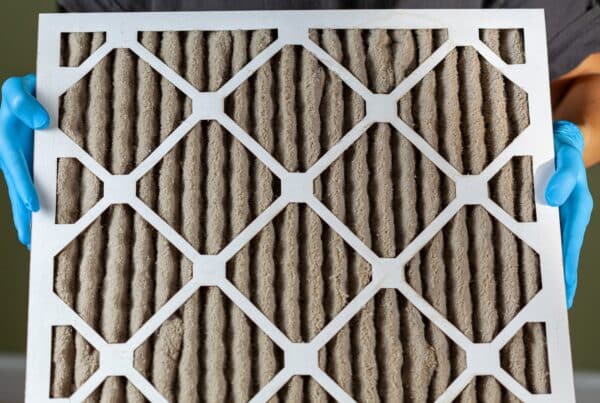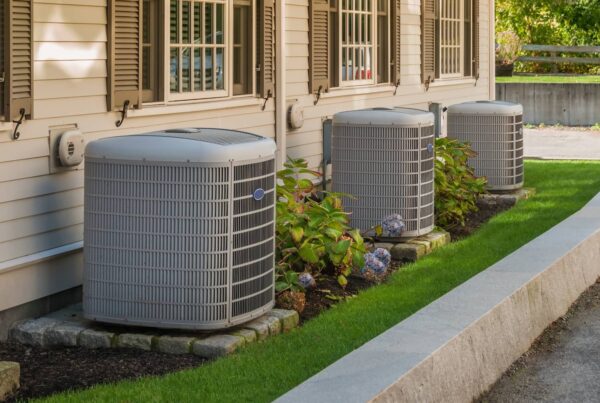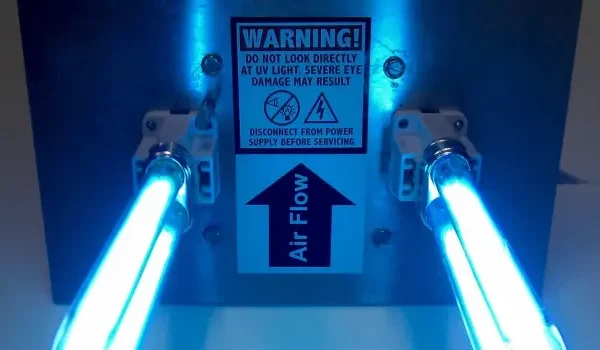
The air handler is a vital component of your HVAC system, helping ensure efficient operation. It’s often overlooked, but understanding the function and maintenance of your air handler can prevent costly repairs and maintain year-round comfort in your home.
This article delves into the role of air handlers, their components, and troubleshooting signs. By the time we say goodbye, you’ll have a newfound appreciation for this essential element of your HVAC system.
Understanding HVAC Systems
Your HVAC system is a complex network of components that work together to keep your home comfortable. The system consists of a furnace or heat pump that generates heat during colder months and an air conditioner or heat pump that cools your home during warmer weather. These primary components connect with a series of ducts that distribute conditioned air throughout your living space.
The furnace, often fueled by natural gas or electricity, warms air that is then circulated by the air handler. In the summer, the air conditioner or heat pump removes heat and humidity, cooling air before it’s distributed. The evaporator coil absorbs heat from the air inside your home, while the condenser unit releases that heat outside.
Ductwork plays a crucial role in the efficiency of your HVAC system. Well-designed and properly maintained ducts ensure that conditioned air reaches every room in your home without leaks or energy waste. Poorly maintained or designed ductwork can lead to uneven temperatures, reduced comfort, and higher energy bills.
Amidst all these components, the air handler is the VIP that keeps everything running smoothly. Its primary function is circulating conditioned air throughout your home, ensuring consistent comfort in every room.

Example of a Standard Air Handling Unit
More About Your Air Handler
This is a critical component of your HVAC system, responsible for circulating conditioned air throughout your home.
It works with your furnace or heat pump to ensure your house receives the proper amount of heated or cooled air. The air handler is typically located indoors and consists of several key components.
- Blower motor and fan – The blower motor powers the fan, which draws air from your home into the HVAC system and then pushes the conditioned air back out through the ductwork.
- Heating and cooling coils – These coils are responsible for conditioning the air. The evaporator coil absorbs heat from the air during the cooling process, while the heating coil warms the air during the heating process.
- Air filter – The air filter traps dust, dirt, and other airborne particles, preventing them from circulating through your home and keeping your HVAC system clean.
- Dampers and valves – These components help regulate the flow of air through the system, ensuring that each room receives the appropriate amount of conditioned air.
While the air handler may seem similar to a furnace, they serve different purposes. A furnace is responsible for generating heat, while the air handler’s main function is to circulate the conditioned air. Some HVAC systems, such as those with a heat pump, may not have a separate furnace at all. These rely solely on the air handler to distribute heated and cooled air.
Signs of an Air Handler Issue
Knowing how to recognize signs of trouble with your air handler can help you address problems early. Keep an eye out for these common indicators that this part of your HVAC system may need attention:
- Unusual noises – If you hear squealing, grinding, or banging sounds from your air handler, it could indicate a problem. These noises may suggest worn bearings, loose belts, or other mechanical issues that require professional attention.
- Weak airflow – Weak airflow from vents could mean your air handler is struggling. This may be due to a clogged air filter, a malfunctioning blower motor, or issues with the ductwork.
- Inconsistent temperatures – Poor temperature regulation throughout the house may indicate that your air handler is not distributing conditioned air evenly. This could be caused by damper or valve problems. Alternatively, it may suggest a more significant blower motor or ductwork issue.
- Higher energy bills – If you notice a sudden spike in your energy bills without a corresponding increase in usage, it could be a sign that your air handler is working harder than it should be to circulate air. This may be due to a variety of factors, including a clogged air filter, leaky ductwork, or a malfunctioning blower motor.
- Frequent cycling – If your HVAC system seems to turn on and off more frequently than usual, it could indicate a problem with the air handler. This may be caused by a clogged air filter, a malfunctioning thermostat, or issues with the blower motor.
When to Call a Professional
While some issues can be resolved with simple solutions, others require the expertise of an expert HVAC technician. If you’ve tried basic troubleshooting steps like replacing air filters or adjusting dampers and the problem persists, it’s time to call in the pros.
Seek professional help if you experience:
- Persistent noises after checking for obvious issues
- No improvement in airflow or efficiency after replacing air filters
- Uneven temperatures that don’t resolve with thermostat or damper adjustments
- Sudden, unexplained spikes in energy bills
- Electrical issues or strange smells
When in doubt, a trained professional can diagnose issues quickly. From there, they’ll recommend appropriate solutions and help you maintain your air handler to prevent future problems. Remember that addressing air handler issues promptly and working with a trusted HVAC professional when needed is key.

Other Recommended Maintenance
Regular maintenance is essential to keep your air handler running smoothly and efficiently. Just by following these simple maintenance tips, you can extend the life of your air handler, improve your HVAC system’s performance, and avoid costly repairs.
- Change air filters regularly – Check your air filters monthly. Replace them as needed, typically every 1-3 months depending on usage and environmental factors. Clean filters ensure proper airflow and prevent dust and debris from accumulating in your air handler.
- Schedule annual professional maintenance – Have a qualified HVAC technician inspect and service your air handler annually. They can clean and lubricate components, check for wear and tear, and identify potential issues before they become major problems.
- Maintain the area around your air handler – Ensure the space around your air handler is open and clean. This allows for proper airflow and prevents overheating.
- Ensure proper insulation – Ensure your air handler and ductwork are properly insulated to minimize energy loss and maintain consistent temperatures throughout your home.
- Upgrade to a programmable thermostat – Installing a programmable thermostat can help optimize your HVAC system’s performance, reducing strain on your air handler and saving energy.
Conclusion
In essence, your air handler is the backbone of your HVAC system. It works hard behind the scenes to keep you comfortable in every season. Taking the time to understand its role, keeping an eye out for warning signs, and giving it some regular TLC can reward you with a consistently cozy home and an HVAC system that runs like a well-oiled machine.
Don’t be afraid to call in the pros when you need them – they’re superheroes for you and your home. A little bit of attention and care can go a long way in preventing costly breakdowns and ensuring your air handler is always ready to keep you and your loved ones comfortable. To schedule an inspection of your entire home or just your HVAC system, reach out to All Coast Home Inspections in Houston, TX, and surrounding areas!



